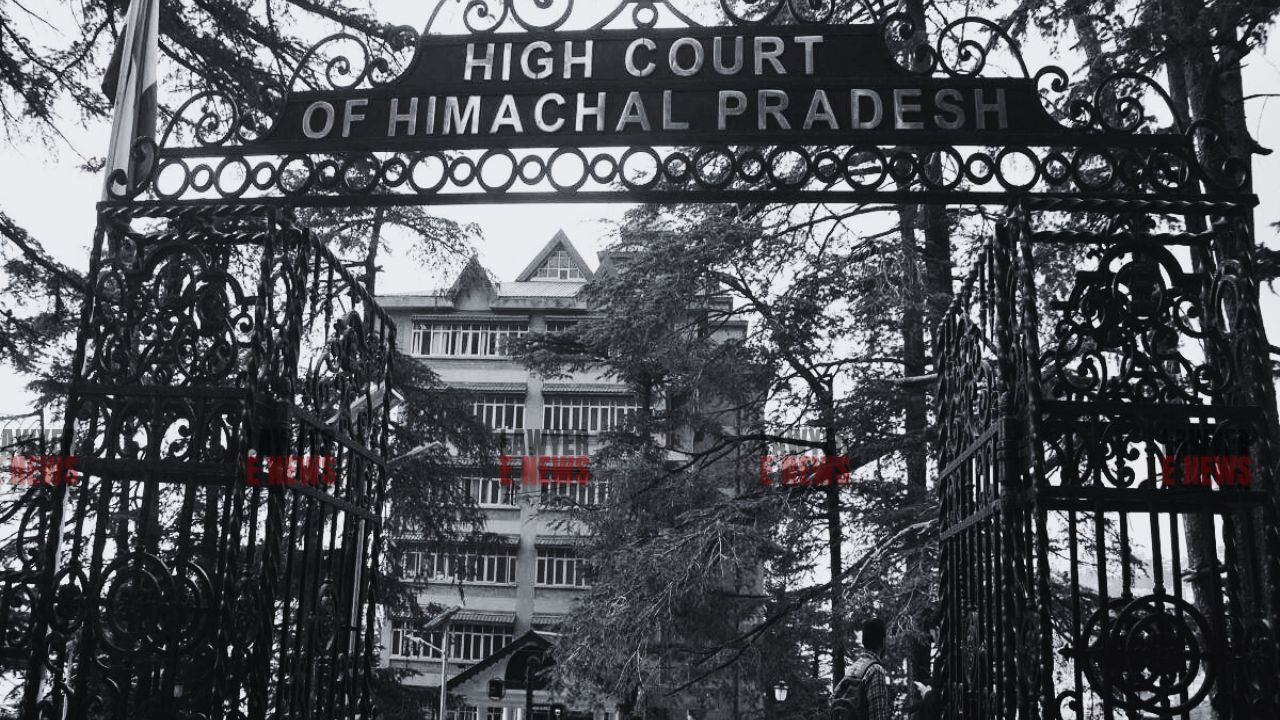-
by Admin
15 February 2026 2:36 AM



In a significant ruling, the Himachal Pradesh High Court set aside two lower court orders denying bail to a juvenile accused of committing a heinous offense under Section 376 of the Indian Penal Code (IPC) and Section 4 of the Protection of Children from Sexual Offences (POCSO) Act. The High Court emphasized the mandatory nature of Section 12 of the Juvenile Justice (Care and Protection of Children) Act, 2015, requiring sufficient grounds for denying bail to a child in conflict with the law, especially in cases involving moral or psychological danger.
The case arose from an FIR filed on April 16, 2024, by the father of a 7-year-old girl in Nahan, Himachal Pradesh. He alleged that the juvenile, referred to as the Child in Conflict with Law (CCL), had sexually assaulted his daughter while playing together. Following the incident, the CCL was detained in an observation home after his bail application was denied by both the Juvenile Justice Board and the Fast Track Special Court (POCSO).
The CCL, through his legal counsel, challenged the lower courts' orders, arguing that Section 12 of the Juvenile Justice Act mandates that juveniles be released on bail during the pendency of the trial unless specific conditions justify otherwise.
Justice Sandeep Sharma highlighted that the Juvenile Justice Act promotes the presumption of innocence and emphasizes that a juvenile should ordinarily be granted bail. The provision outlines that bail can only be denied if there is evidence suggesting that the child would be exposed to moral, physical, or psychological danger or would associate with known criminals upon release. The court reiterated that "bare accusations" should not suffice to deny bail.
The High Court found fault with the lower courts for rejecting the bail application solely based on the severity of the crime without providing substantive reasoning or evidence. "No material worth credence was ever adduced by the prosecution to suggest that in the event of CCL being enlarged on bail, he may come in contact with hardened criminals or again indulge in such activities," the court observed. It emphasized that both the lower courts failed to apply the law adequately and did not provide cogent reasons for denying bail.
Justice Sharma referenced the Supreme Court's decision in Juvenile in Conflict with Law V. The State of Rajasthan (2024), which stressed the need for specific findings in the denial of bail to juveniles. The court also cited the Allahabad High Court's interpretation of the term "known criminal," underlining that it must be based on objective evidence, not mere speculation
The court highlighted that Section 12 mandates the release of a juvenile unless sufficient grounds justify otherwise. These grounds must be substantiated by clear evidence rather than a "subjective satisfaction" of the court. Furthermore, the court observed that the juvenile's right to bail cannot be denied simply based on the gravity of the offense, without assessing the individual circumstances of the case.
The High Court stressed the importance of non-stigmatizing treatment of juveniles in conflict with the law, noting that sending a child to an observation home could harm their educational and emotional development.
"Both courts below merely presumed that the enlargement of CCL on bail may result in creating terror among the victim and other children... without adduction of material or convincing reasoning," remarked Justice Sharma. The judge added, "The release of a juvenile on bail should not be denied on mere suspicion or accusations. Specific findings must substantiate such a decision."
The ruling reflects the judiciary's commitment to ensuring that juveniles are treated with care and not subjected to punitive measures without sufficient cause. By quashing the lower courts' orders, the High Court reinforced the principle that the denial of bail to juveniles must be based on solid reasoning and evidence. The decision sets a precedent for ensuring that the rights of children under the Juvenile Justice Act are upheld, particularly when they are accused of heinous crimes.
Date of Decision: August 21, 2024.
XYZ v. State of Himachal Pradesh
